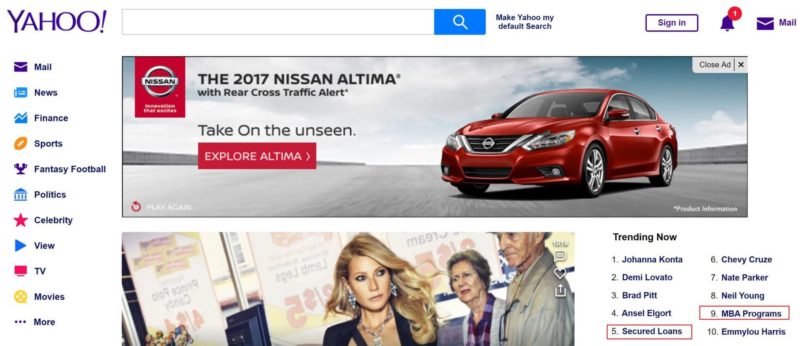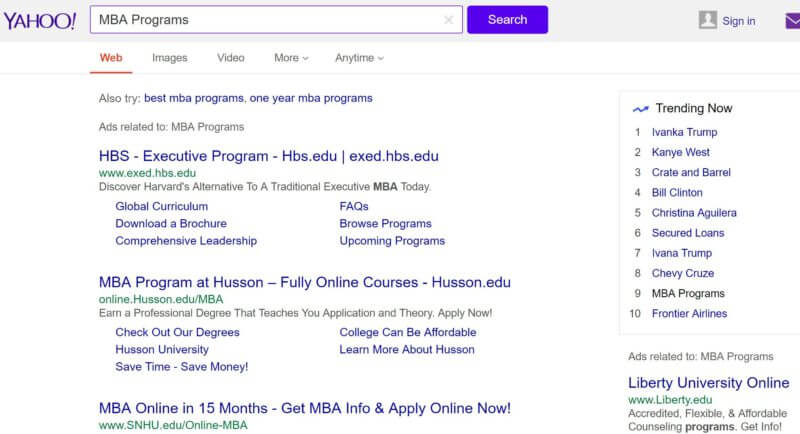Yahoo is using display ads to drive search traffic for competitive terms
Ads link directly to search results for terms across a number of competitive verticals.
In an unusual move, Yahoo has begun running display ads that drive users directly to search results pages.
A search on Moat.com shows a series of display ads from Yahoo prompting users to “Search now” to find the right asthma treatment, the most popular cars, deals on a new truck, coupons for oil changes and more.
These ads link to search results pages on Yahoo and sometimes Bing.
Similar — though unbranded — ads are running in apps as well. This ad for “2016 new sedan models” is running through Twitter’s MoPub ad exchange.
Spotted by Gil Hong of Seer Interactive, the ad links to Yahoo search results for the search term “2016 new sedan models” as seen below. I have since seen this ad as well and confirmed it goes to this search results page.
Just got a mobile app add with this as the landing page… #ppcchat pic.twitter.com/gVV5GITOL7
— Gil Hong (@_GilHong) October 13, 2016
The ads appear to be targeting popular and highly competitive (read: expensive) search terms. Advertisers running search campaigns through Yahoo and/or Bing are likely not aware that Yahoo is generating traffic to search results pages in this fashion. Advertisers I’ve spoken with had not been made aware that Yahoo is using this tactic. Certainly, the intent of users coming from a display ad is different from that of users who go straight to the search engine, and the performance is likely going to be quite different.
Advertisers in verticals covered in this campaign may see spikes in impressions and clicks on specific keywords. There does not appear to be a manual way to opt out of having ad impressions shown on results pages that are generated from display ad clicks.
From what I have ascertained, the effort has been running for at least a few weeks. This comes at a challenging time for Yahoo. The recent acknowledgment that hackers gained access to at least 500 million users’ login data in 2014 could possibly affect the price Verizon pays to acquire the company. The display campaign could be questioned by advertisers as an unnatural way to goose the company’s search performance during a time of heightened pressure on the company.
This is not the only way Yahoo drives traffic for competitive commercial search queries, however. On desktop, for example, Yahoo’s home page features a list of topics that are supposedly “Trending Now.” While most of these results link to Yahoo search pages that feature links to Trending News articles about the subject at the top of the page, a few conspicuously do not fit in with a trending list. Here “secured loans” and “MBA programs” are listed among the trending topics.
Click on “MBA Programs,” and there is no trending news, just a standard page of lightly labeled ads at the top and right of the page.
Search Engine Land has reached out to Yahoo (and Bing) with questions about the display campaigns and will follow up here with any updates.
Contributing authors are invited to create content for Search Engine Land and are chosen for their expertise and contribution to the search community. Our contributors work under the oversight of the editorial staff and contributions are checked for quality and relevance to our readers. The opinions they express are their own.
Related stories
New on Search Engine Land




